Manual de uso Yamaha Soavo-1 Altavoz
¿Necesita un manual para su Yamaha Soavo-1 Altavoz? A continuación puedes ver y descargar el manual en PDF gratis en español. Este producto actualmente tiene 5 preguntas frecuentes, 0 comentarios y tiene 0 votos. Si este no es el manual que desea, , contáctenos.
¿Su producto tiene algún defecto y el manual no ofrece ninguna solución? Vaya a Repair Café para solicitar un servicio de reparación gratuito.
Manual de uso
Loading…


Loading…
Puntuación
Dé su opinión de la Yamaha Soavo-1 Altavoz calificando el producto. ¿Quiere compartir su experiencia con este producto o hacer una pregunta? Deje un comentario en la parte inferior de la página.Más sobre este manual
Entendemos que es bueno tener un manual en papel para tus Yamaha Soavo-1 Altavoz. Siempre puedes descargar el manual desde nuestro sitio web e imprimirlo tú mismo. Si deseas tener un manual original te recomendamos contactar con Yamaha. Es posible que puedan proporcionar un manual original. ¿Estás buscando el manual de tu Yamaha Soavo-1 Altavoz en otro idioma? Elija su idioma preferido en nuestra página de inicio y busque el número de modelo para ver si lo tenemos disponible.
Especificaciones
| Marca | Yamaha |
| Modelo | Soavo-1 |
| Categoría | Altavoces |
| Tipo de archivo | |
| Tamaño del archivo | 1 MB |
Todos los manuales para Yamaha Altavoces
Más manuales de Altavoces
Preguntas frecuentes sobre Yamaha Soavo-1 Altavoz
Nuestro equipo de atención al cliente busca información útil sobre los productos y responde a las preguntas frecuentes. Si encuentra inexactitudes en las preguntas frecuentes, indíquenoslo usando nuestro formulario de contacto.
Quiero conectar un altavoz a mi televisor con HDMI. ¿Qué puerto debo usar? Verificado
Debe usar el puerto HDMI-ARC, que está hecho específicamente para conectar equipos de audio.
Ha sido de gran ayuda (1359) Leer más¿Qué indican las frecuencias sobre mi altavoz? Verificado
Indican el rango de frecuencias que el altavoz puede producir. Una gama más amplia de frecuencias proporcionará una mayor variación en el sonido y producirá un sonido de mayor calidad.
Ha sido de gran ayuda (741) Leer más¿Cuándo está la música demasiado alta? Verificado
El sonido por encima de los 80 decibelios (dB) puede causar daños en la audición. Los sonidos por encima de 120 dB dañan la audición de forma inmediata. La gravedad de los daños depende de la frecuencia y la duración del sonido.
Ha sido de gran ayuda (432) Leer más¿El bluetooth funciona a través de paredes y techos? Verificado
Una señal bluetooth funcionará a través de paredes y techo, a menos que estén hechos de metal. Dependiendo del grosor y del material de la pared, la señal puede perder fuerza.
Ha sido de gran ayuda (198) Leer más¿Hasta qué nivel es seguro el ruido para los niños? Verificado
Los niños se dañan los oídos antes que los adultos. Por lo tanto, nunca exponga a los niños a un ruido superior a 85 dB. En el caso de los auriculares hay modelos especiales para niños. Con altavoces u en otras situaciones hay que estar atento para que el ruido no supere ese nivel.
Ha sido de gran ayuda (174) Leer más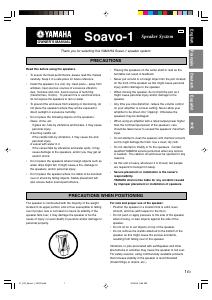

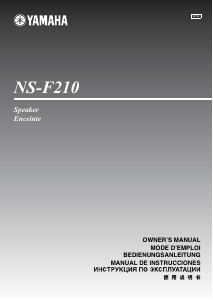
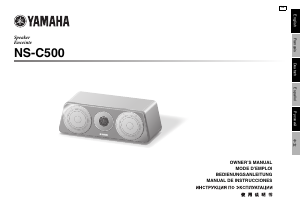
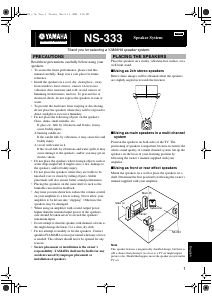
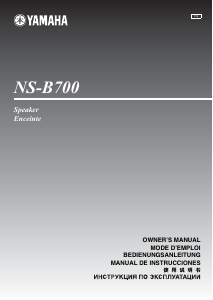
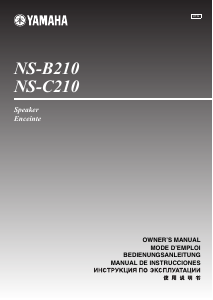

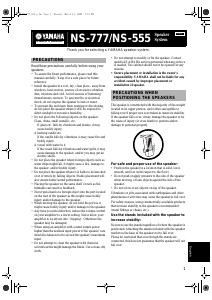
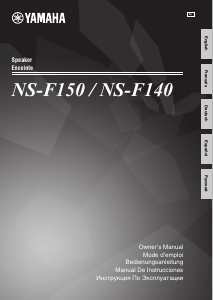
Únase a la conversación sobre este producto
Aquí puedes compartir lo que piensas sobre Yamaha Soavo-1 Altavoz. Si tiene alguna pregunta, primero lea atentamente el manual. Puede solicitar un manual utilizando nuestro formulario de contacto.